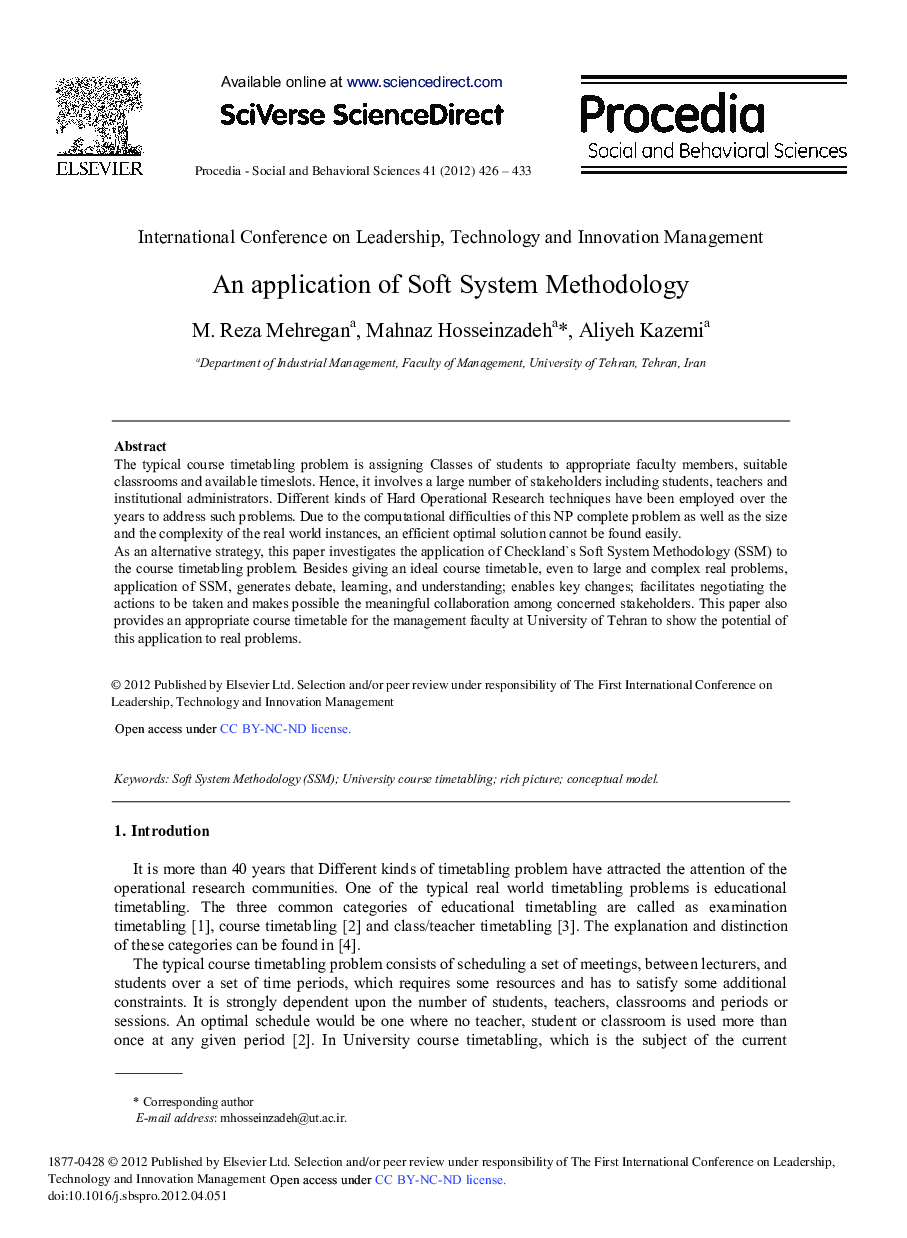| Article ID | Journal | Published Year | Pages | File Type |
|---|---|---|---|---|
| 1122493 | Procedia - Social and Behavioral Sciences | 2012 | 8 Pages |
The typical course timetabling problem is assigning Classes of students to appropriate faculty members, suitable classrooms and available timeslots. Hence, it involves a large number of stakeholders including students, teachers and institutional administrators. Different kinds of Hard Operational Research techniques have been employed over the years to address such problems. Due to the computational difficulties of this NP complete problem as well as the size and the complexity of the real world instances, an efficient optimal solution cannot be found easily.As an alternative strategy, this paper investigates the application of Checkland‘s Soft System Methodology (SSM) to the course timetabling problem. Besides giving an ideal course timetable, even to large and complex real problems, application of SSM, generates debate, learning, and understanding; enables key changes; facilitates negotiating the actions to be taken and makes possible the meaningful collaboration among concerned stakeholders. This paper also provides an appropriate course timetable for the management faculty at University of Tehran to show the potential of this application to real problems.
